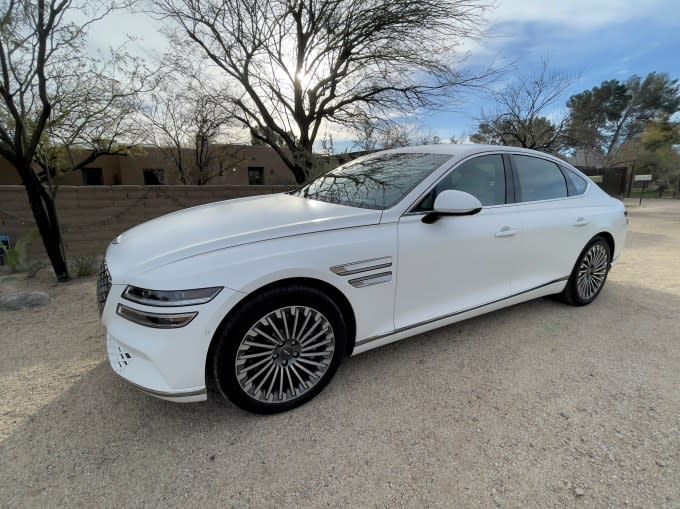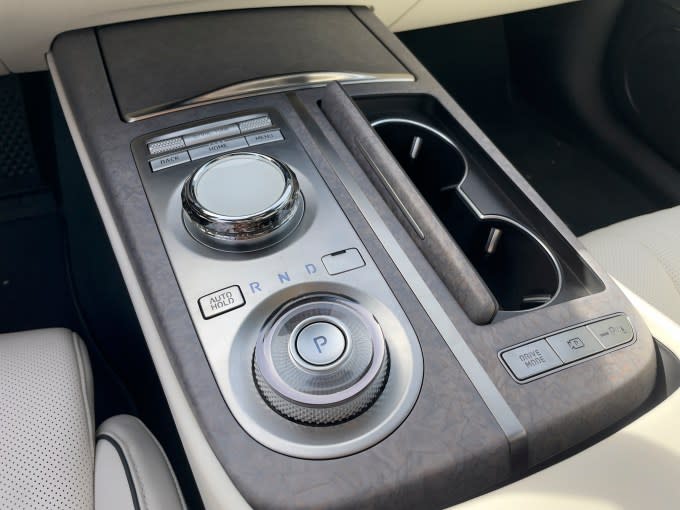Stellantis CEO dishes on Waymo, Rivian cuts staff and the great EV softening continues
TechCrunch Mobility is a weekly newsletter dedicated to all things transportation. Sign up here — just click TechCrunch Mobility — to receive the newsletter every weekend in your inbox. Subscribe for free.
Welcome back to TechCrunch Mobility — your central hub for news and insights on the future of transportation.
Stellantis CEO Carlos Tavares and I covered a lot of ground in a wide-ranging interview covering the company's previously disclosed targets on EV, the threat that Chinese automakers pose, its deal with Amazon on software and whether the Ramcharger and electric Dodge Charger are still on track (they are). Look out for more coverage this coming week, btw.
You might be surprised to learn that Stellantis is still intent to deploy commercial self-driving vans through a partnership with Waymo. Tavares said they're working to "deepen" the relationship; you can read more about that here. Of course, as he talked, I wondered if this was wishful thinking or an attempt to show the company was still part of the autonomous vehicle conversation? Any of my doubts could be cleared up by this summer. Stay tuned.
This week's news also includes articles on Uber's push into India in travel ticketing and delivery, consolidation in shared micromobility, a second chance for Nikola's defunct Badger pickup truck and more!
Let's go!
A little bird
Here's an interesting one that brings high-end real estate and automotive together. Back in January, Mercedes-Benz made its real estate debut in a tie up with Binghatti Properties. The two companies partnered on a $1 billion development in Dubai that will include 150 apartments starting at $2.7 million a pop.
A little bird told us that Mercedes will announce another "Mercedes-Benz Places" development before the end of the month — this time in the United States. What's your guess?
On the EV front, we got word of an interesting development with Cake, the Swedish e-motorbikes startup that entered into bankruptcy protection. While Cake winds its way through that process, a Florida man, who owns a retail shop called Emoto, bought all of the Cake Makka and Ösa motorbikes that had been shipped stateside as well as accessories and spare parts.
Check out our story that all started with a tip!
Got a tip for us? Email Kirsten Korosec at kirsten.korosec@techcrunch.com or Sean O'Kane sean.okane@techcrunch.com. If you prefer to remain anonymous, click here to contact us, which includes SecureDrop (instructions here) and various encrypted messaging apps.
Deal of the week
Just when I thought the micromobility industry couldn't consolidate any more, Cooltra acquired Cityscoot, the Paris-based service known for its iconic white-and-blue electric mopeds that was placed under court-ordered receivership several months ago.
As reporter Romain Dillet notes, micromobility startups thrived in Europe when interest rates hovered around 0%. The economic skies got a lot cloudier though when interest rates rose, making it harder to raise funding rounds and to secure the debt facilities required to acquire new vehicles. A wave of bankruptcies and mergers followed.
Cityscoot raised at least $75 million since its founding in 2014. After failing to secure a new funding round to keep the company afloat, it filed for insolvency and was later placed under court-ordered receivership. Cooltra's offer, which was approved by the courts, mostly focuses on Cityscoot's assets, including its user base.
According to court documents, Cooltra is spending €400,000 ($430,000 at today's exchange rate) to acquire Cityscoot and plans to spend around €1.5 million ($1.6 million) over the next two years to finance the merger.
Other deals that got my attention ...
Haomo.ai, an autonomous driving startup backed by Chinese automaker Great Wall Motor, raised 100 million yuan, or $14 million, in a Series B funding round led by Chengdu Wufa Private Equity Fund Management, an investment vehicle backed by the government of Chengdu.
Not a deal, but a name change! Robotic Research Autonomous Industries (RRAI), an autonomous vehicle company with a history of working with the Department of Defense, changed its name to Forterra.
Notable reads and other tidbits
Autonomous vehicles
Uber Eats plans to launch a delivery service with Cartken's sidewalk robots in Japan. The companies already have limited operations in Fairfax, Virginia and Miami.
Waymo's expansion plans for California have slowed thanks to a delay over at the California Public Utilities Commission. News of the pause had some casting this as a major setback. While criticism and pressure around regulations on robotaxis has increased, I don't think it's as detrimental as some suggest. The CPUC said its decision to suspend the application for further review is "not uncommon." To me the most interesting nugget was learning that Waymo had updated its application to include parts of San Mateo County that would unlock a route to the San Francisco International Airport.
Electric vehicles, batteries & charging
Arc, the electric boating startup, revealed a new battery-powered wake sports boat called the Arc Sport.
Earnings illustrated — once again — that the appetite for high-priced luxury EVs might not be as large as we thought. Lucid Motors said it only built 9,000 EVs in 2024 after once predicting it would ship 90,000; Rivian, which is laying off 10% of workers to cut costs, said it expects to build 57,000 EVs in 2024; and Mercedes will not meet its target for 50% of sales to be electrified (including hybrids) by 2025. The new target is now 2030.
Meanwhile, Ford cut prices of its all-electric 2023 Mustang Mach-E by has much as $8,100 in an effort to rid itself of inventory and compete with Tesla and its increasingly cheaper EVs.
In-car tech
Hivemapper, a mapping startup, is launching a new dashcam later this year that its co-founder believes will speed up efforts to claw market share away from Google. Yup, Google!
This week's wheels
Image Credits: Kirsten Korosec
I'm back in another Genesis, this time the G80 EV AWD. I've only had a couple of days behind the wheel, but I already have a list of "likes" and "room for improvement." The white matte model I drove is listed at $82,450.
Genesis aficionados might recognize the battery-electric G80 as it is nearly identical (with the exception of the powertrain and other related bits) to the gas-powered G80 3.5T Sport. Taking a vehicle designed for an internal combustion engine and reworking it into an EV does mean some compromises. The power and torque is there — two 136-kilowatt electric motors provide the equivalent of 182 horsepower each — and the finished look is compelling. But squeezing in that 87.2 kilowatt-hour battery ended up taking away some space from the trunk. And nope, there isn't a front trunk, or frunk, either.
This EV is quiet on the highway, but tends to get a bit noisy on rougher roads. The advanced driver assistance system is simple to use and includes adaptive cruise, which accelerates or brakes to maintain a selected following distance from a vehicle ahead, as well as lane keeping "assist" (this will not steer for you) and other safety alert features like blind spot warning.
Image Credits: Kirsten Korosec
I have, so far, found the interaction with the infotainment system frustrating at times, particularly using the large chrome dial on the center console that is waaaayyy too close to the other dial that shifts gears (see above).
Moving the dial illuminates different areas on the screen, which the user is then supposed to click when they have found what they want. It works, but it isn't exactly smooth or intuitive. Add in a little glare from the sun and it can be difficult to see what is highlighted. I might have explained "Damn it, I didn't want that!" a few times while on a recent drive.





